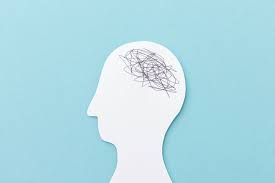There is widespread agreement among mental health professionals, says Hofmann, that the system needs to change.
霍夫曼說,心理健康專家普遍認為,這一體系需要改變。
But reaching consensus and rewriting the approach is still likely years away.
但要達成共識并重新制定方案,可能還需要數年時間。
Eventually, clinicians will have more measures from genetics, neuroscience, neural imaging and other disciplines
最終,臨床醫生將從遺傳學、神經科學、神經成像和其他學科獲得更多的措施,
that would help shape the clinician's ability to pick a treatment applicable to individual patients,
這些措施將有助于塑造臨床醫生挑選適用于個別患者的治療方法的能力。
says Daniel Pine, chief, section on development and affective neuroscience, in the National Institute of Mental Health Intramural Research Program.
美國國家心理健康研究所下屬機構內研究項目發展和情感神經科學部門負責人丹尼爾·派恩說,
Finding new and more specific ways to classify patients who are experiencing symptoms is an important initial step.
發現新的和更具體的方法來分類患者的癥狀是一個重要的初步步驟。

When it comes to finding new drugs to treat anxiety, the pharmaceutical industry has yet to incorporate the new science into its drug discovery methods that might target specific circuits or parts of the circuit.
在尋找治療焦慮癥的新藥方面,制藥業還沒有把這門新科學納入到可能針對特定回路或部分回路的藥物發現方法中。
Instead, says the Salk Institute's Tye, they have relied largely on trial and error—"shooting into the dark."
相反,索爾克研究所的泰伊說,他們很大程度上依賴于試錯——“在黑暗中摸索”。
In recent years, many pharmaceutical companies, discouraged by the complexity of the mechanisms of anxiety in the brain, have reduced spending on R&D for anxiety medications.
近年來,許多制藥公司對大腦中焦慮機制的復雜性感到沮喪,減少了焦慮藥物的研發支出。
"We're just bathing the brain and body in these drugs," she says.
“我們只是把大腦和身體浸泡在這些藥物中,”她說。
"And, when you take a drug systemically, it's going to go through your circulatory system.
“當你系統地服用藥物時,它會通過你的循環系統。
It's going to pass through the blood brain barrier.
它會穿過血腦屏障。
And it's going to bathe the entire tangled mess of wires that is our brain in a soup."
它會把我們的大腦浸在一鍋湯里。”
This, she notes, will activate a wide array of circuits, including those that have opposite functions.
她指出,這將激活大量的電路,包括那些功能相反的電路。
"And then, that has two results.
“這有兩個結果。
Number one, you get zero sum effects, because the neurons that have opposing effects cancel each other out,
你得到了零和效應,因為具有相反效應的神經元相互抵消,
and that's probably why it doesn't work on some people," she says.
這可能就是為什么它對一些人不起作用,”她表示。
"And number two, we have nonspecific effects,
“第二,我們有非特異性效應,
where you're targeting a bunch of neurons that do something totally different than what you wanted to target, and that give you undesirable side effects."
當你瞄準一群神經元它們做的事情和你想要瞄準的完全不同,這會給你帶來副作用。”
譯文由可可原創,僅供學習交流使用,未經許可請勿轉載。













